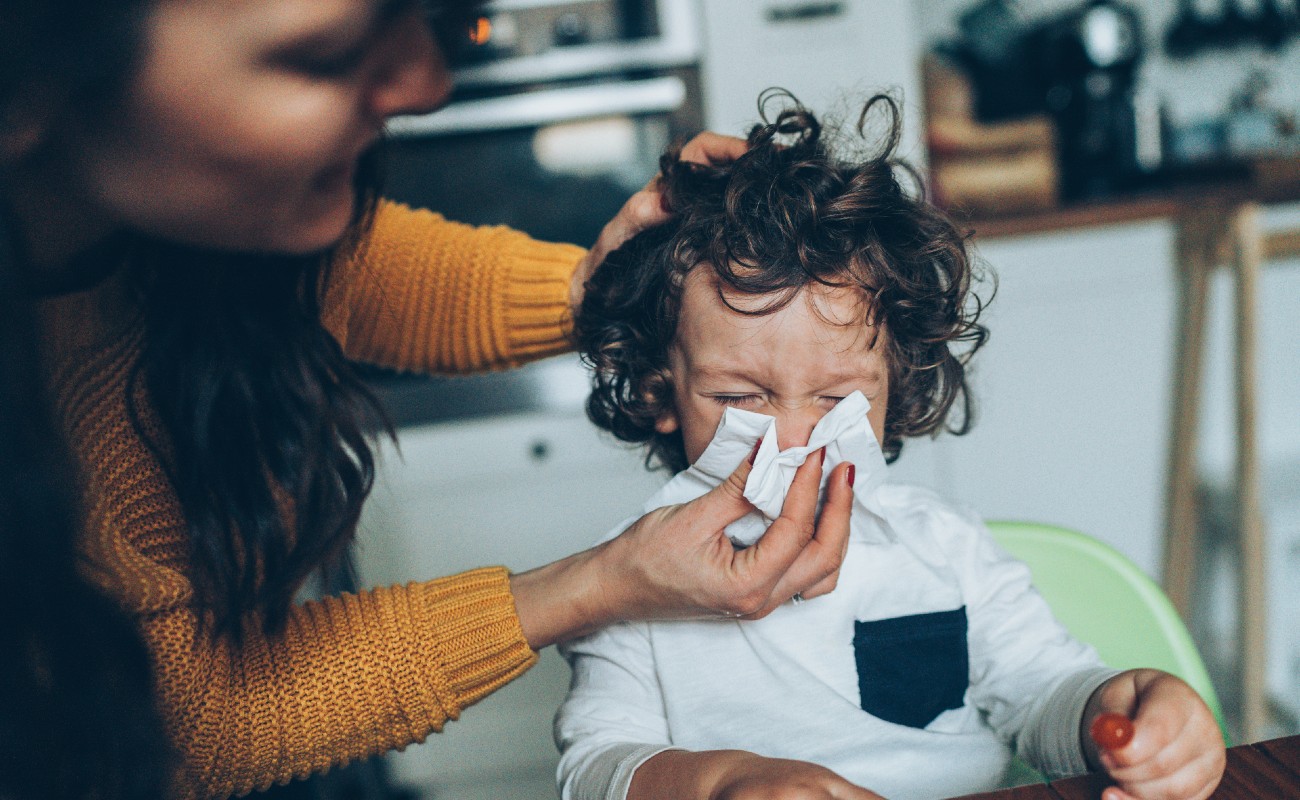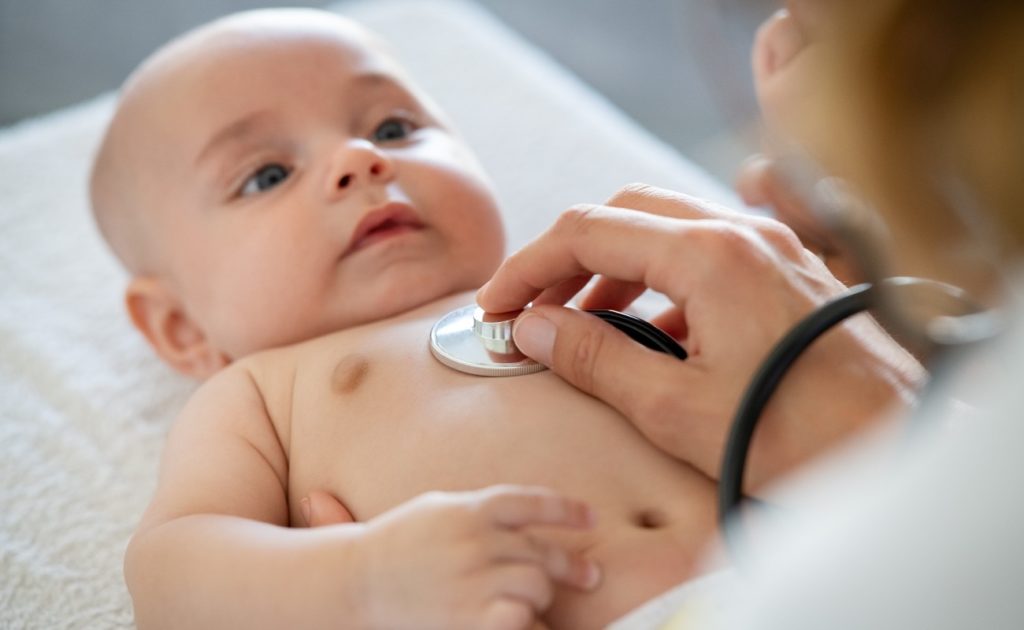What Parents Should Know About RSV
Advice from Nemours Children’s Health about signs, symptoms, and when to seek care.

You’ve probably heard about respiratory syncytial virus or RSV a lot lately. That’s because cases of this illness have increased since last year. RSV mainly causes cold symptoms, and most people who get it get better on their own. But when babies or toddlers get RSV, it can turn into something more serious called bronchiolitis. Bronchiolitis causes the lung’s tiny airways (bronchioles) to swell and fill with mucus. This makes it hard to breathe.
Bronchiolitis usually gets better on its own, but sometimes kids need treatment in the hospital. With the winter season upon us, it’s good to know what to look for — and when to get help — the next time your child comes down with a nasty cold.
Why are RSV cases on the rise?
Doctors aren’t exactly sure why, but it may be because fewer people are wearing masks now. RSV is a common childhood illness, but many kids did not have it over the last couple of years due to COVID-19 precautions that helped keep germs away.
What are the signs and symptoms of RSV?
Symptoms of RSV include:
- Stuffy or runny nose
- Sore throat
- Mild headache
- Cough
- Fever
- Not eating or drinking well
- General ill feeling
Sometimes kids with RSV develop more serious symptoms that turn into bronchiolitis or pneumonia (a lung infection). Premature babies, children younger than 2 years old, kids who are around secondhand smoke, and those with conditions that affect the lungs, heart or immune system are especially at risk.

When should I call my doctor?
Call your health care provider if your child:
- Develops a high fever or a new fever (after getting over a first one).
- Has a cough or other symptoms that get worse.
- Is wheezing (a whistling sound heard with breathing).
- Is not feeding well or is showing signs of dehydration, such as fewer wet diapers than usual.
If you need care after hours, have a telehealth visit with a pediatrician on the Nemours app.
When should I go to the ER?
Go to the ER if your child:
- Has trouble breathing. This may look like:
- fast, shallow breathing, when you see the belly moving up and down quickly.
- your child is working hard to get breaths in. You may see the areas below the ribs, between the ribs, and/or in the neck sinking in with breathing.
- flared nostrils.
- lips or fingernails that look blue.
- Is very fussy and can’t be comforted.
- Is very tired or won’t wake up for feedings.
How is RSV treated?
Most cases of RSV are mild and get better on their own within 1 to 2 weeks. Some kids need to go to the hospital for extra fluids and/or breathing help. At home:
- Offer plenty of fluids. Make sure your child gets enough to drink by offering fluids in small amounts often.
- Use a cool-mist vaporizer or humidifier in your child’s room to help loosen mucus in the airway and relieve cough and congestion.
- Clear nasal congestion using a nasal aspirator and saline (saltwater) nose drops.
- Make sure your child gets plenty of rest.
Can I give my child medicine for RSV?
Talk to the doctor before giving your child any medicine. Antibiotics can’t help because RSV is a viral infection and antibiotics work only against bacterial infections.
For babies who are old enough, you may be able to give medicine to help with fever and make your child more comfortable. Follow the package directions about how much to give and how often.
Can I prevent my child from getting RSV?
RSV spreads easily by touching infected people or surfaces, so wash hands often. School-age kids who have a cold should keep away from younger siblings — especially babies — until they get better.
Is there a vaccine to protect against RSV?
There is no vaccine approved yet, but researchers are working on it. One RSV vaccine in development is for pregnant women to take before their babies are born. This way, moms can pass on immunity to their babies. Vaccine approval is expected in 2023.
To learn more about RSV and bronchiolitis, visit Nemours KidsHealth.org.



NO COMMENTS